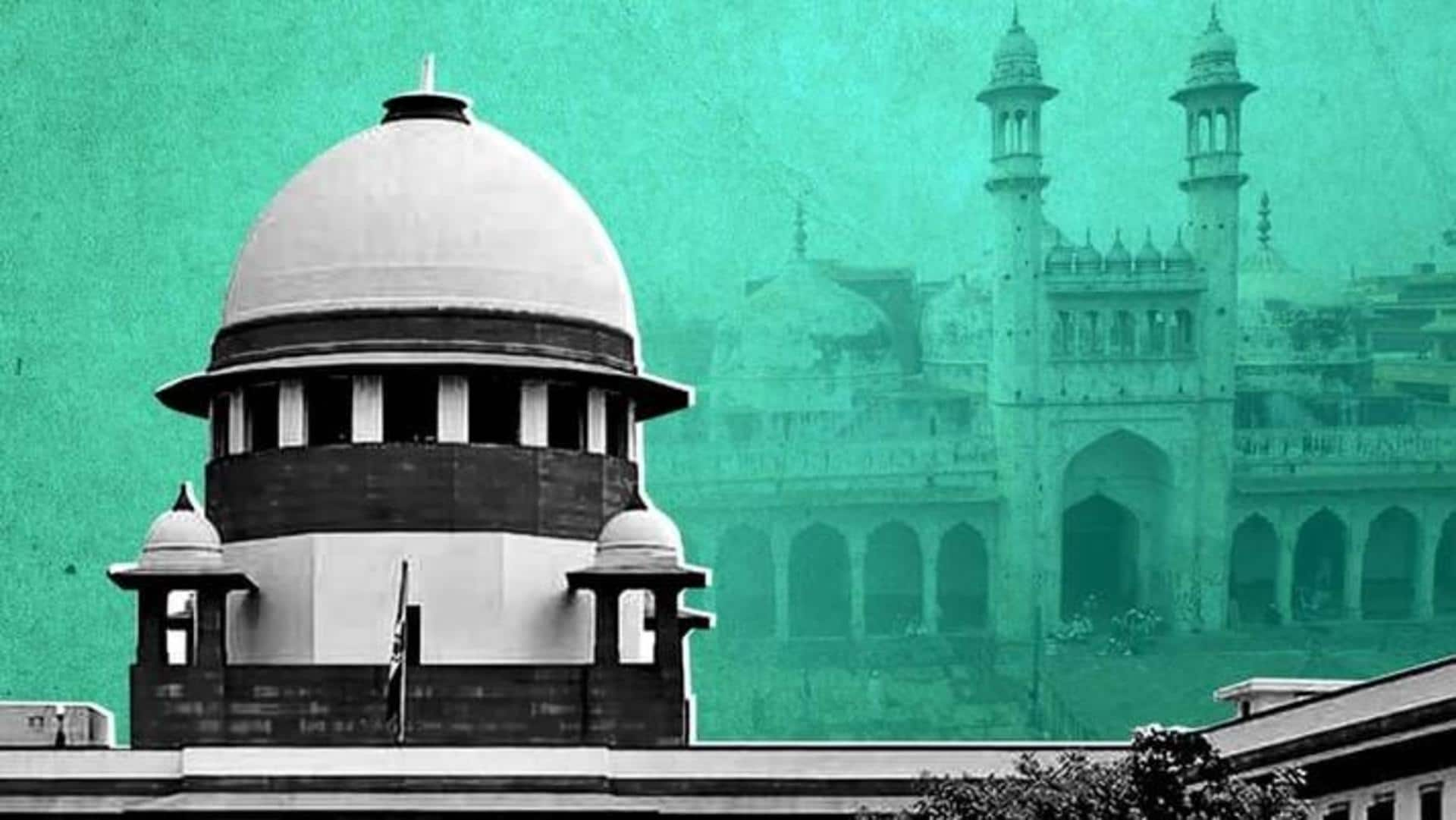
Supreme Court stays ASI survey of Gyanvapi Mosque till Wednesday
What's the story
The Supreme Court on Monday stayed the Varanasi District Court order—which allowed the Archeological Survey of India (ASI) to conduct a scientific survey of Varanasi's Gyanvapi Mosque premises—until 5:00pm on Wednesday. The SC asked the Muslim side petitioners to approach the Allahabad High Court at the earliest against the survey. It also directed the HC to hear the matter before the stay order expires.
Context
Why does this story matter?
The order came just a few hours after the ASI began a survey of the mosque complex. The Gyanvapi Mosque is one of several mosques that Hindu right-wing groups claim were built by Muslim invaders after destroying Hindu temples. The ruling Bharatiya Janata Party (BJP) allegedly fanned the issue after its formation decades ago, presenting it as a reclamation project for Hindus.
Supreme Court
'No invasive work' should be undertaken in Gyanvapi Mosque: CJI
An SC bench headed by Chief Justice DY Chandrachud ordered that "no invasive work" should be undertaken by the ASI in the Gyanvapi Mosque. It took note of the submissions made by senior advocate Huzefa Ahmadi, representing the mosque committee that the matter be heard urgently. The survey was allowed by the Varanasi court to determine whether the mosque was built upon a temple.
Proceedings
Not a brick will be moved: Solicitor General Tushar Mehta
"Let there be a status quo for the time being. No excavation, no invasive method until we hear it," Justice Chandrachud said while hearing the matter. Solicitor General Tushar Mehta, who was representing the Uttar Pradesh government, told the court that only photography, measurements, etc., were being done, and not a single brick will be moved for at least a week.
Facts
Survey began on Varanasi court's order
On Friday, the Varanasi court directed the ASI to conduct a "detailed scientific survey," including excavations where necessary, to ascertain whether the mosque was erected on the site of an older temple. However, following an earlier SC judgment, the mosque's wazukhana (water reservoir for ablution), where a structure alleged by Hindu petitioners to be a Shivling exists, would not be included in the exercise.
Background
Survey was deferred by SC in May
In May, the SC deferred a scientific survey, including a carbon dating of the disputed object, which was found during a videographic survey last year. Earlier, the mosque management committee pleaded against the survey, claiming that it could damage the mosque complex. In response, the Hindu plaintiffs' counsel told the court that the ASI stated the survey could be conducted without damaging the object.
Pleas
Know about petition by 4 Hindu women
Four Hindu women filed a lawsuit in May, alleging that the Gyanvapi Mosque, located close to the Kashi Vishwanath Temple, was erected on top of a Shiv temple demolished by "Muslim invaders." According to their claim, the Swayambhu Jyotirlinga, a self-born Shivling, existed at the location for millions of years before Muslim invaders damaged or destroyed it.
Reaction
Counterclaim by Vishwanath Temple priest
Meanwhile, the priest of Kashi Vishwanath Temple, Rajendra Prasad Tiwari, reportedly stated that his forefathers looked after the temple before Mughal emperor Aurangzeb demolished it in 1669 after killing his brother Dara Shikoh. He denied the Hindu plaintiffs' claim that the object is the original Vishweshwar Shivling, claiming that his descendants had already erected it in the Kashi Vishwanath Temple.